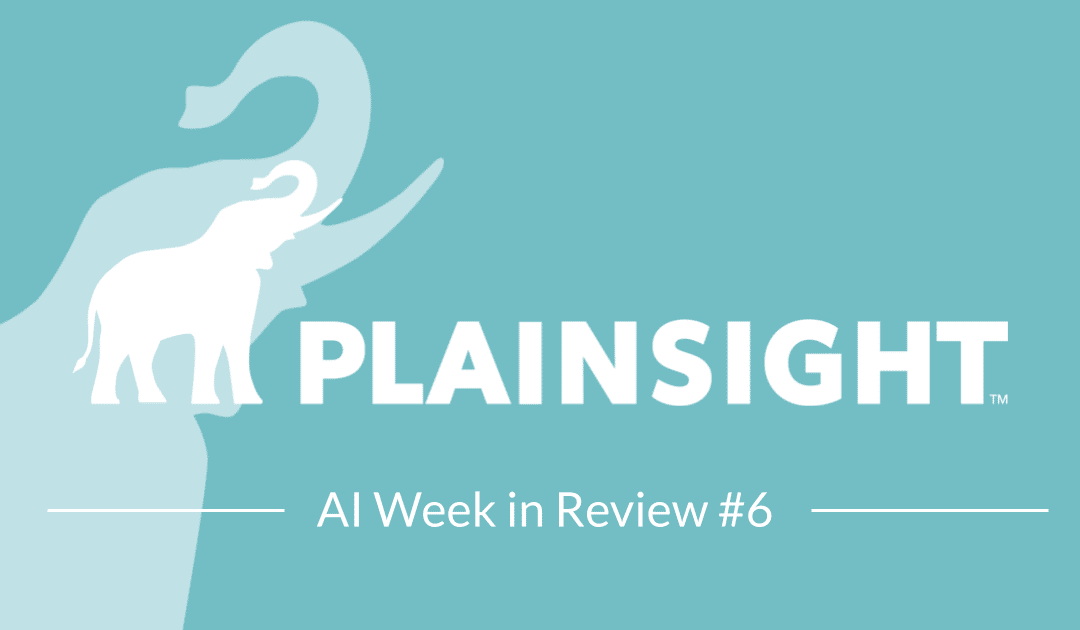This week in AI and ML news: Bard’s debut, a revamped Bing, and more.
Author’s Note
An emphasis on automation and autonomy often obscures the full benefit of artificial intelligence. Deployed effectively and leveraged by end users with the requisite skills, solutions like computer vision augment human capabilities and empower enterprises to combine the best of both worlds. In the first part of a series on human-centric AI, we looked at the ways computer vision is augmenting operations for ranchers, farmers, and agribusinesses. Check it out and stay tuned for an exploration of the ways AI empowers and enhances the workforce in the restaurant and retail industries.
AI News
Bard’s First Demo Raises Concerns
Following weeks of speculation, Google formally unveiled Bard, an AI chatbot intended to rival OpenAI’s popular ChatGPT, this past Monday. Google intends to release Bard publicly over the coming weeks, but also showed it off in a demonstration posted to Twitter. Taking the form of a .GIF, the demo shows one user ask Bard, “what new discoveries from the James Webb Space Telescope can I tell my 9 year old about.” Users were quick to point out that Bard’s response includes a factual error. Bard credits the Webb telescope with taking the first photo of a planet outside Earth’s solar system. NASA, however, points out that such images were first captured nearly two decades ago.
Concerns over facts and fact-checking have dogged generative AI solutions since their debut. CNET was forced to issue an apology several weeks ago when readers discovered that AI-penned blogs included various errors and inconsistencies. The site is still in the process of assessing the problem and making manual corrections.
Shares of Alphabet dropped 7% in the wake of the demonstration and commentators are again raising questions about the overall efficacy of such solutions. With conversational and generative AI continuing to make headlines (and these recaps) week in and week out, there’s no chance Google will allow even a mishap like a $100 million error to put this project on hold.
Could Machine Learning Aid the Search for Extraterrestrial Life?
Thanks to increasingly sophisticated technology, our understanding of the cosmos continually grows more nuanced and we inch closer to answering questions about life among the stars.
Writing for The Verge, Georgina Torbet, notes that the search for extraterrestrial intelligence (SETI) has essentially become a matter of sorting through huge quantities of data. Much recent SETI research has focused on narrow-band radio, a portion of the electromagnetic spectrum. Experts believe that intelligent lifeforms are likely to communicate the same ways we do, via narrow bands of electromagnetic radiation. The 1420MHz range is of particular interest and researchers believe extraterrestrials are most likely to be interested in this range as well.
SETI research has lately involved pouring over data with the help of an algorithm called turboSETI. While the algorithm is useful for making sense of huge amounts of data and identifying signals, it’s prone to delivering false positives. A new machine learning-powered approach proposed by the University of Toronto’s Peter Ma in Nature Astronomy aims to cast a wider net and recognize signals trained technicians and traditional algorithms might neglect. It makes analyzing cosmic data faster and more efficient while opening up the exciting possibility of a world-changing discovery. Read more about Ma’s new approach and what it could mean for the future of SETI.
Meet the New Bing
The last several weeks have brought reports that Microsoft was partnering with OpenAI, the team behind ChatGPT, to transform its Bing search engine. This week, the organization officially unveiled AI-powered changes to both Bing and its Edge browser. In a blog announcement, Microsoft describes how they’ve integrated searching, chatting, and browsing to create what they call a “copilot for the web.”
Though the idea of Bing supplanting Google has been met with skepticism, the first slate of headlines suggest Microsoft’s efforts may already be paying off. Here’s just a sample of what tech journalists have had to say:
- According to the New York Times, “Microsoft’s ChatGPT-Powered Bing Makes Search Interesting Again.”
- In Yahoo Finance’s words, “Microsoft’s Bing is the first threat to Google’s search dominance in decades.”
- The Wall Street Journal’s Joanna Stern headlined her exploration, “I Tried Microsoft’s New AI-Powered Bing. Search Will Never Be the Same.”
Though the battle atop the search engine rankings has been beyond one-sided for the last decade-plus, generative AI-fueled competition is undoubtedly making things much more interesting.
About Plainsight Technologies
Plainsight dramatically reduces the cost and complexity of AI-powered computer vision across many verticals and enterprise use cases, including manufacturing, retail, food service, theft, and more. As companies automate their operations with AI and Agents, Plainsight brings vision capabilities to watch and analyze events in the real world and generate structured data for analytics and reporting. Headquartered in Kirkland, Washington, Plainsight Technologies operates as a distributed team, delivering cutting-edge solutions worldwide. To learn more, visit plainsight.ai.




